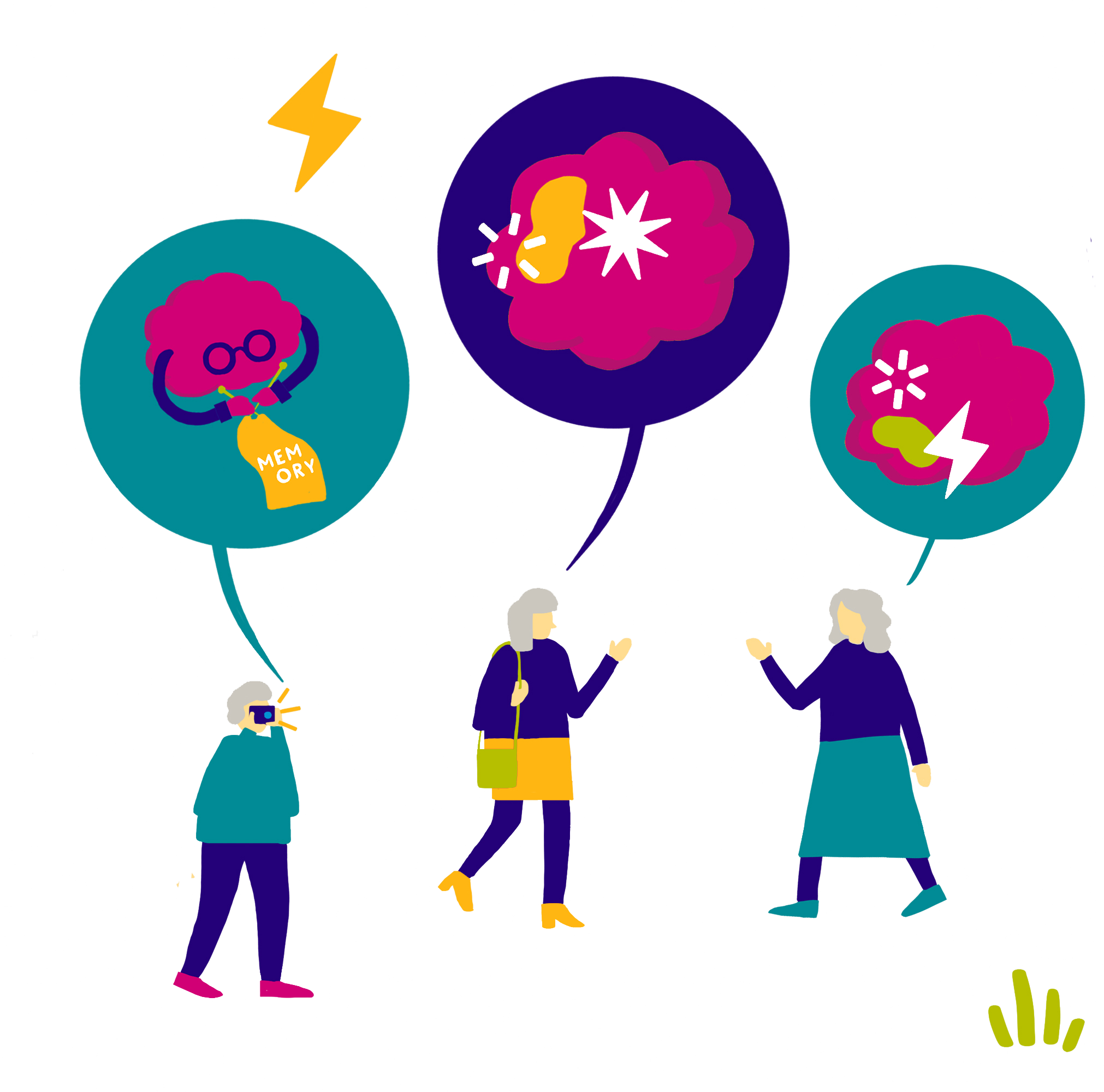Severity: Warning
Message: session_start(): Failed to initialize storage module: user (path: /var/www/session)
Filename: Session/Session.php
Line Number: 143

Some decline in memory and thinking skills is fairly common as we age. But it is helpful if you can separate out run-of-the-mill changes and the kind of memory loss we might see with Alzheimer’s disease and similar conditions. Normal memory lapses include forgetting names, overlooking where you left your keys, forgetting details of a chat or struggling to remember what you just read.
Knowing when your memory concerns warrant a visit to the doctor can be tricky. This film, made by our friends at freedemliving.com, may help you to decide.
One word that we all hear is “dementia,” but what does it mean? This is not a disease, but is a sort of handle used to carry around a basket of symptoms, including problems with memory, reasoning, judgement, language and other thinking skills. People with dementia may forget entire events, rather than just some details. Memory loss, especially of recent events, is often the first symptom, and it becomes progressively worse over time.
You might also forget common words when speaking, or take longer to follow something you have done for many years, such as following your mother’s raspberry cheese cake recipe. Or you might misplace items in unusual places, like putting the milk in a drawer, or get lost while walking or driving around a familiar neighbourhood. Alzheimer’s is the most common cause of dementia, though dementia can be caused by other conditions too.
Warning flags for you to be concerned about memory are if problems negatively influence your daily life; perhaps you repeatedly ask the same questions or repeatedly forget important dates. Those with Alzheimer’s disease may also find it an uphill struggle to follow a work plan, work with numbers or keep abreast of monthly bills. Or you could run into trouble remembering the rules of your favourite game. If you have concerns, best to visit your doctor and perhaps the news will be better than you expect.
Our brains slowly shrink in volume from our early twenties on, and blood flow to the brain ebbs over time. But the good news is that the brain remains capable of regrowth, especially if you exercise regularly and stimulate yourself with challenging and new tasks. 
Share this page: